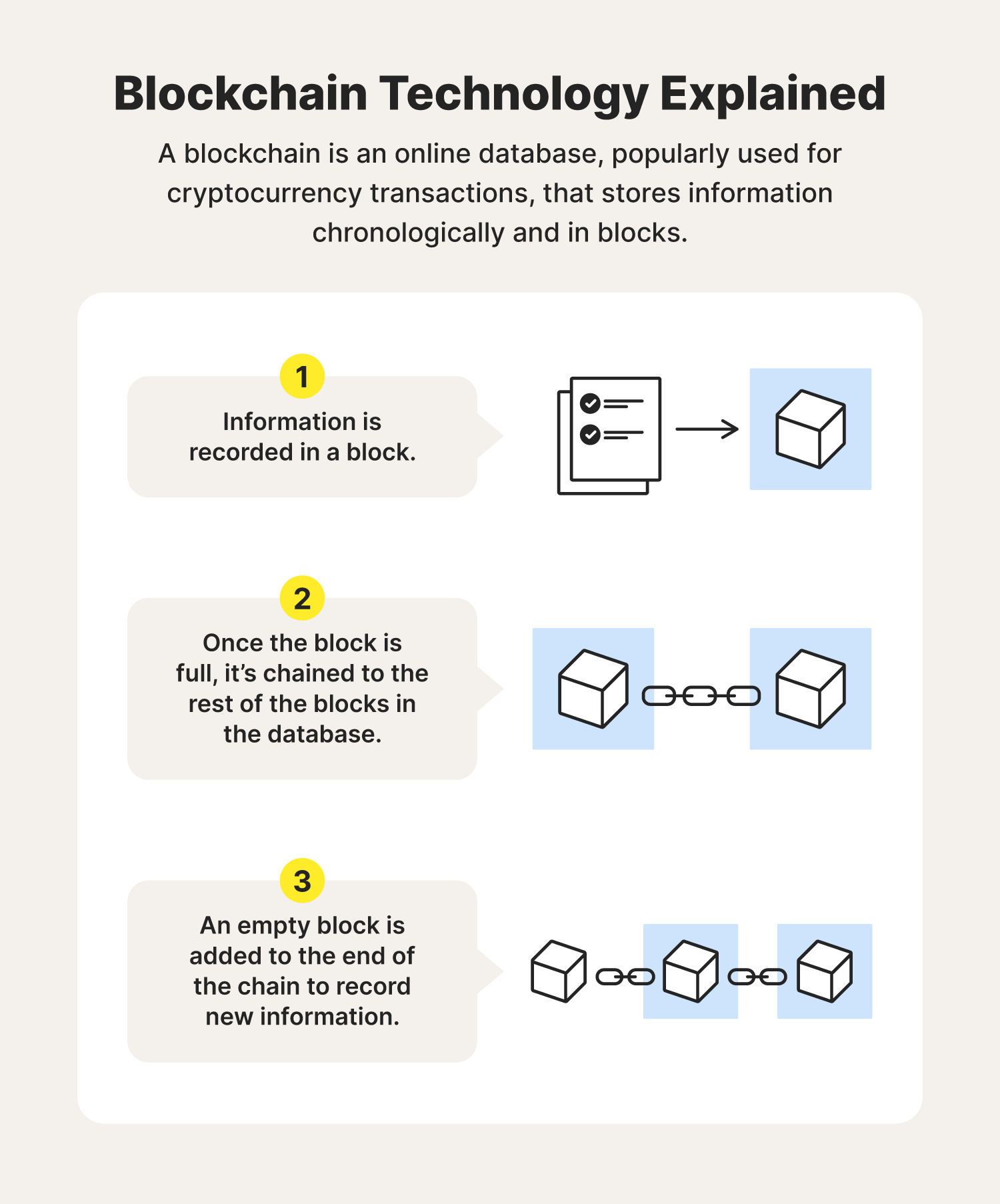My Insight Hub
Your go-to source for daily insights and updates.
Blockchain: The Digital Ledger That Everyone is Talking About
Discover how blockchain revolutionizes finance, security, and beyond. Uncover the secrets of the digital ledger everyone's buzzing about!
What is Blockchain and How Does It Work?
Blockchain is a revolutionary technology that enables the secure and transparent recording of digital transactions. It operates on a decentralized network of computers, often referred to as nodes, that validate and record each transaction in a digital ledger. This ledger is immutable, meaning once a transaction is added, it cannot be altered or deleted, ensuring the integrity of the data. Each block in the chain contains a list of transactions and is cryptographically linked to the previous block, creating a chronological and tamper-proof history. The decentralized nature of blockchain enhances security, as it eliminates the need for a central authority, reducing the risk of fraud and hacking.
The process of how blockchain works can be broken down into several key steps:
- Transaction Initiation: A user initiates a transaction, requesting to record certain data.
- Verification: Nodes in the network verify the transaction using algorithms and consensus mechanisms.
- Block Creation: Once verified, the transaction is bundled with others to form a new block.
- Chain Addition: The new block is added to the existing blockchain, ensuring the entire network is synchronized.
- Confirmation: After the block is added, all users are notified, and the transaction is considered complete.

Top 5 Real-World Applications of Blockchain Technology
Blockchain technology has rapidly evolved from its inception with Bitcoin to encompass a myriad of real-world applications across various industries. First and foremost, financial services have witnessed a significant transformation due to the introduction of blockchain. It enables faster and more secure transactions without the need for intermediaries, which not only reduces costs but also enhances transparency. Major banks and payment systems are now exploring ways to leverage blockchain for remittances, cross-border payments, and even digital currencies.
Another prominent application lies in supply chain management. By utilizing blockchain, companies can trace the entire journey of a product from its origin to the end consumer, ensuring authenticity and reducing the risk of fraud. This is particularly vital in industries such as pharmaceuticals and food, where the safety and quality of products are paramount. Additionally, sectors like healthcare and voting systems are also leveraging blockchain for secure data management and to ensure transparency in electoral processes. The advantages of blockchain technology are evident, making its integration into various sectors increasingly vital.
Is Blockchain the Future of Finance?
The advent of blockchain technology has sparked a revolution in various sectors, and the finance industry is no exception. With its decentralized nature and strong emphasis on transparency, blockchain is poised to redefine traditional financial systems. By eliminating the need for intermediaries, such as banks, it not only reduces costs but also enhances the speed of transactions, making it an attractive alternative for businesses and consumers alike. Furthermore, the security features inherent in blockchain can help combat fraud and ensure the integrity of financial data, establishing a new level of trust among users.
Many financial experts believe that blockchain could streamline the way we manage assets, execute transactions, and maintain records. Its potential applications range from cross-border payments to smart contracts, which automatically execute agreements when predetermined conditions are met. As more institutions explore these possibilities, the question arises: Is blockchain truly the future of finance? The answer may hinge on the technology's ability to integrate with existing systems, regulatory support, and widespread adoption among users. As we move forward, the landscape of finance may be forever altered by this innovative technology.